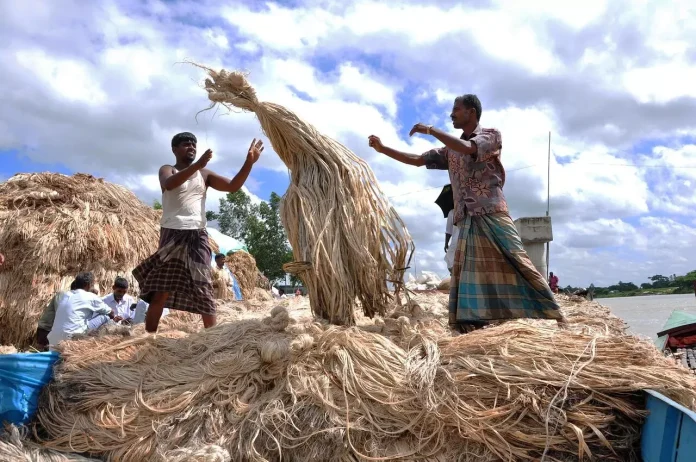NEW DELHI, June 28: In a significant trade move reflecting growing diplomatic unease, India has imposed immediate restrictions on the import of jute and allied fibre products from Bangladesh. The new trade curbs, announced by the Directorate General of Foreign Trade (DGFT) under the Ministry of Commerce, apply to all Indian land and sea ports, with the exception of the Nhava Sheva seaport in Maharashtra.
The decision comes amid deepening bilateral strain between the two South Asian neighbours and is viewed as part of India’s effort to protect its domestic jute industry from the adverse impact of subsidised imports. Under the South Asian Free Trade Area (SAFTA) agreement, Bangladeshi jute has traditionally enjoyed duty-free access to Indian markets.
However, Indian industry representatives and officials have long raised concerns over dumped and subsidised imports of Bangladeshi jute products, especially yarn, fibre, and bags. According to sources familiar with the matter, despite the imposition of anti-dumping duties (ADD) following investigations by the Directorate General of Anti-Dumping and Allied Duties (DGAD), there has been no substantial decline in the volume of jute imports from Bangladesh.
Officials pointed to credible evidence of continuing Bangladeshi state subsidies to its jute exporters, along with common malpractices such as mislabeling, technical exemptions, exports via ADD-exempted firms, and misdeclaration to secure higher subsidies. These methods, they said, have undermined the effectiveness of the ADD regime and posed a serious threat to India’s jute sector.
The restrictions are also in line with the government’s broader push for “Atmanirbhar Bharat” (self-reliant India) and are intended to safeguard rural livelihoods tied to India’s traditional jute economy, which employs lakhs of farmers and mill workers, particularly in West Bengal and parts of the Northeast.
While India has not officially linked the trade decision to geopolitical tensions, the timing of the move has drawn attention, given the worsening diplomatic climate over a range of bilateral issues, including cross-border trade practices and regional influence.
The Bangladesh government has yet to issue an official response to the latest restrictions. However, trade analysts suggest that this move may trigger a review of economic ties and could complicate ongoing efforts at regional cooperation within SAARC and SAFTA frameworks.

